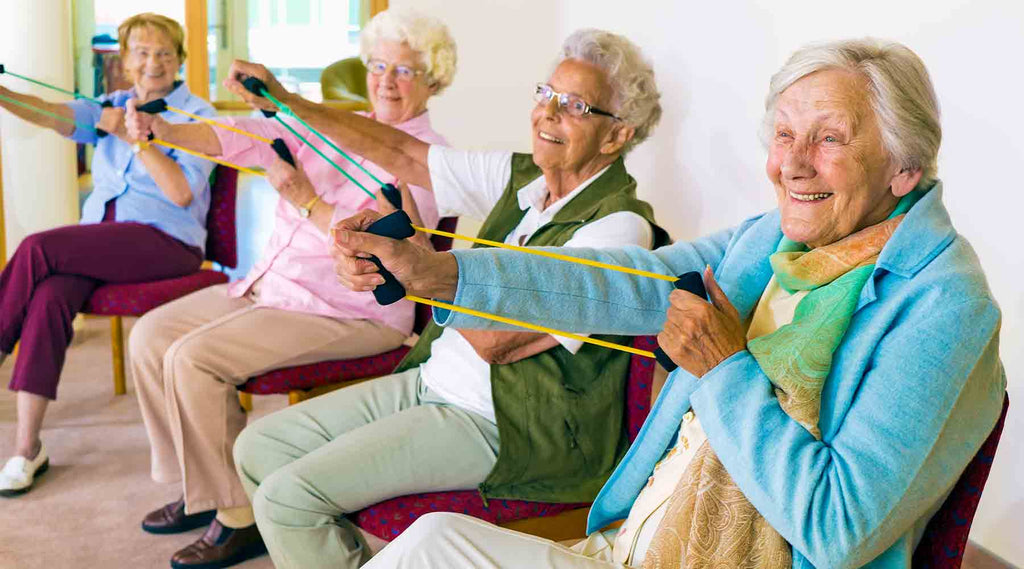
We all know that physical activity is of huge benefit to our health. It helps control weight, reduces risk of type 2 diabetes and cardiovascular disease and strengthens bones and muscles, among other things. Studies also show that it helps lower the risk of cognitive decline.
These benefits can all help improve the quality of life for people with Alzheimer's and de mentia, and help them maintain their abilities. By combining the physical aspect with an activity that is also mentally or socially engaging, the benefits can be multiplied.
Active dementia programs can be specific exercise activities such as a seated exercise, or other programs that require movement such as walking groups or tai chi. They can also be activities that encourage movement as part of the game such as tossing a ball, or modified games such as basketball or bowling.
Any program that encourages movement works towards putting off excess disabilities, improves the mood and health of the person and helps them maintain their abilities. You can modify existing programs yourself, or buy them ready to go.

The "Cupcake Walk" - similar to musical chairs but if you don't get a chair, all is not lost. You get a cupcake (and some exercise)!
The most important aspect of active programming is that it be done regularly, ideally every day. The sessions don't have to take a lot of time - usually half an hour is plenty to complete the program. Start with one program on the same day and time each week, then add more as the session becomes routine.




